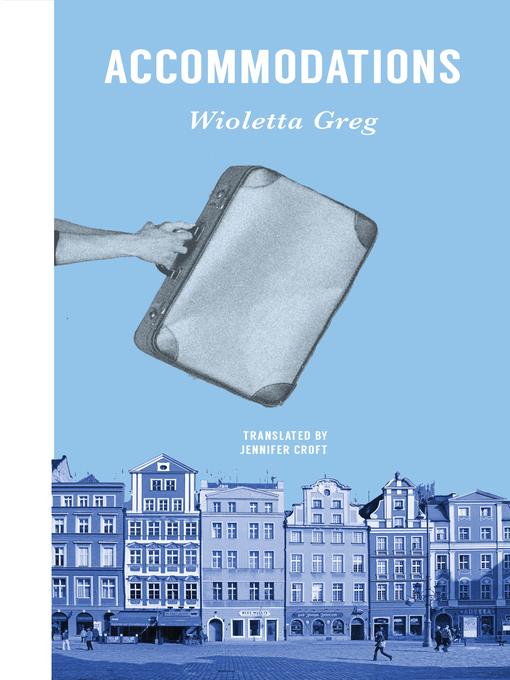
Accommodations
کتاب های مرتبط
- اطلاعات
- نقد و بررسی
- دیدگاه کاربران
نقد و بررسی

May 27, 2019
This slim, offbeat volume from Greg (Swallowing Mercury) is a coming-of-age story of dichotomies: city and country, Russia and Poland, and the spiritual and the corporeal. Narrator Wiola has just arrived in the Polish city of Czestochowa for her first year of college in September 1994. She’s determined to leave her rural upbringing behind, and when she doesn’t qualify for university housing, she checks into a hostel, where she is drawn into the lives of other boarders. When university fails to engage her, her living quarters become the locus of her experience and sexual awakening: a knife-throwing lesson from one of her housemates turns steamy, where before she knew sex as “a bit of theory.” After a dreamy interlude of wandering the city, which is decorated by memories of life in the country, she is taken in by nuns and given rooms in a convent. By entering the world of religious life, she is able to find the stability that had been missing from her life in the hostel. Though the narrative perhaps moves a bit too quickly for readers wanting to savor the story, the prose hums with bright, sensual language. Couched in melodious, resonant writing, this fanciful meditation on individual maturation and spirituality will satisfy and stimulate readers.

June 1, 2019
A young woman starts college in early 1990s Poland. Greg's (Swallowing Mercury, 2017, etc.) second autobiographical novel picks up where her first one left off. Wiola, her young protagonist, leaves the remote Polish farm where she's grown up and arrives in Częstochowa, a nearby city, to pursue college. The slim book is light on details regarding college itself. Instead, Greg focuses on the incidental conversations Wiola has with the various people she encounters. Her living situation is somewhat precarious--she stays, first, at a workers' residence, then at a convent--so she has all sorts of conversations with all sorts of people. It's 1994, and the Soviet Union has collapsed, but World War II is still fresh in many people's minds. Wiola meets a woman who describes how German soldiers destroyed her family. "I began to hear gunfire coming from Warsaw Street," she says, "and then they came for us." But most of Wiola's encounters are far more mundane than this one. A florist at the market laments the rising cost of vodka ("I hate to think what's next!"), and a sketchy character called Scurvy tells Wiola about his time in prison. Unlike Swallowing Mercury, this novel focuses primarily on the external--what Wiola sees as she walks about the city, what she hears--rather than her inner thoughts. Greg's prose is pristine, each image crystalline in its clarity, but this is not a novel that covers large distances. By the end, Wiola has certainly traveled beyond her beginnings, but it takes subtlety to understand just how far she's gone. Jewellike in its intensity, Greg's latest novel is a strong follow-up to her first.
COPYRIGHT(2019) Kirkus Reviews, ALL RIGHTS RESERVED.

























دیدگاه کاربران